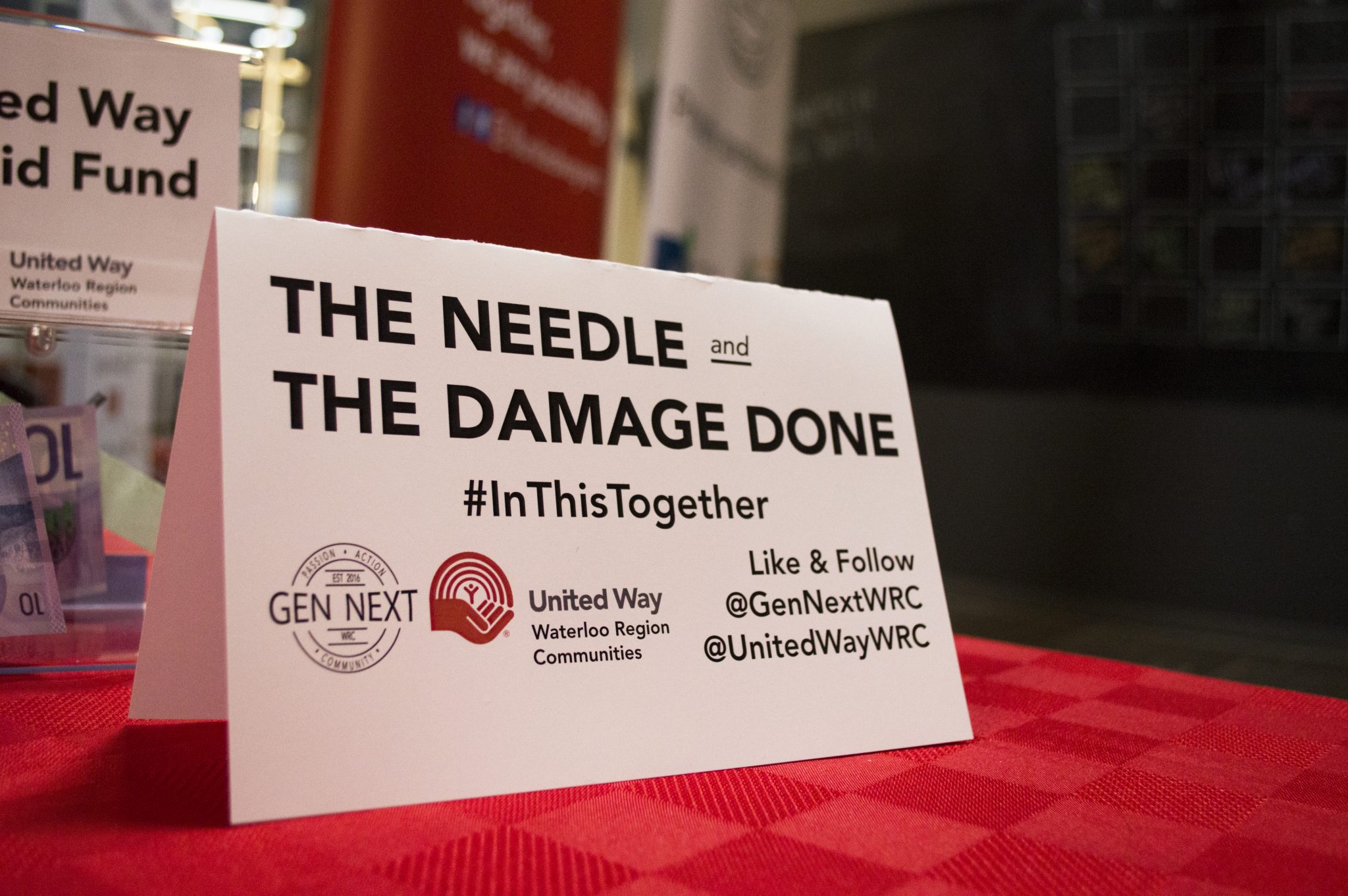The Needle & Damage Done event features panel addressing opioid crisis


On Feb. 8, the United Way hosted a panel discussion featuring local experts to discuss the ongoing opioid crisis in the Waterloo Region.
The panel discussion, part of an event titled The Needle & The Damage Done, took place in Communitech’s office space in downtown Kitchener and is one in a series of GenNext events hosted by the United Way Waterloo Region Communities.
“This is about introducing the next generation to what social service and social responsibility is all about,” Joan Fisk, CEO of United Way Waterloo Region Communities, said. “We have community conversations four times a year in various places. This is one of them. There is usually a topic, there was the gentrification of downtown Kitchener a couple of months ago,” Fisk said.
At this particular event, local experts discussed the stigma around addiction, harm reduction strategies as well as raising awareness and promoting citizen engagement in dealing with the opioid crisis.
In fact, the threat of opioid overdoses on university campuses has lead post-secondary institutions across Canada — including Wilfrid Laurier University — to acquire and make available naloxone kits, which can function as an antidote in the case of overdose.
Among the panelists was Christine Padaric, who lost her teenage son to accidental overdose a few years ago, and has put her support behind such legislation as Bill C-224 — a bill that, after passing, has set out protections from charges for those who access emergency services to aid themselves or others when overdosing on controlled substances.
Other panelists included Violet Umanetz, manager of outreach at Sanguen Health Centre, Bill Kirby, organizing committee member for A Better Cambridge and Ruth Cameron, executive director of the AIDS Committee of Cambridge, Kitchener, Waterloo and area.
Fisk, who helped put together the event, was clear that the desired outcome of the evening’s panel discussion was to raise awareness and garner donations.
“You’ll hear from seven experts — in various ways — from various different angles on this crisis. No one thing can fix it by itself. We need a collective, and that’s what social impact is all about,” Fisk said. “There’s an opioid fund, so The Needle and The Damage Done is all about raising money for this topic, this hot topic about helping because we got to get at it. This money will only be dispersed to issues around opioid addiction,” Fisk said.
Fisk also noted how the dangers associated with opioids can reach all corners of society.
“It’s affecting people that aren’t just poor. It could happen at university,” Fisk said.
In fact, the threat of opioid overdoses on university campuses has lead post-secondary institutions across Canada — including Wilfrid Laurier University — to acquire and make available naloxone kits, which can function as an antidote in the case of overdose.
Beyond this reactionary measure, Fisk iterated on the importance of taking precautionary measures, like raising awareness.
“A big part of what universities can do is the awareness piece, because it’s easy when you’ve had a couple of drinks and someone gives you something — you might not think twice, you might not clearly think ‘oh man maybe I shouldn’t do that,’” Fisk said.

